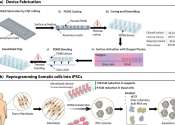New device improves stem cell generation and chance for accessible Alzheimer's cell therapy
Researchers in Sweden say they have improved on a technique for converting regular skin cells into neural stem cells—an advance that they say helps close the gap for accessible personalized cell-based therapies for Alzheimer's ...
9 hours ago
0
7









